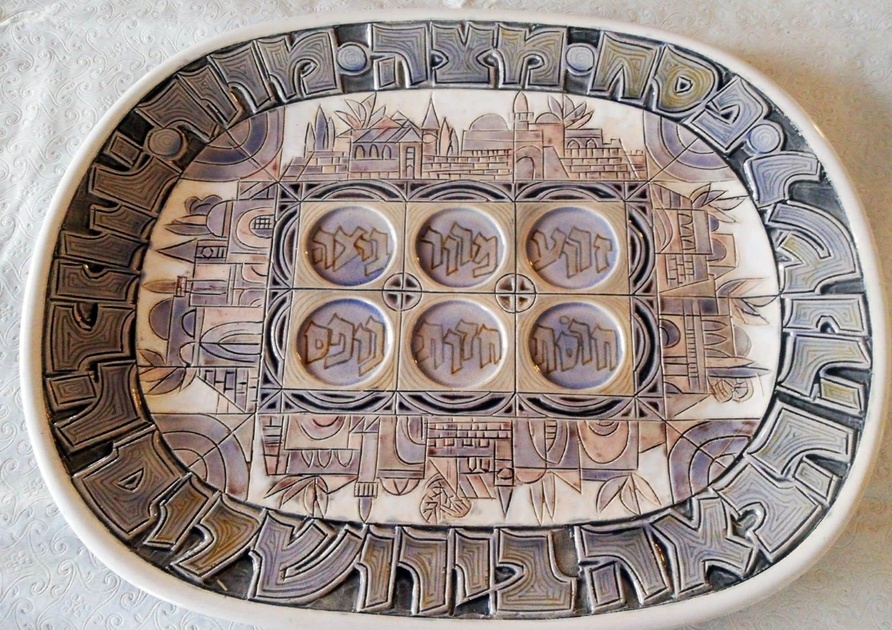
Cleaning House - Pesach
I'm trying to write this blog without discussing the corona virus. I've already failed. I have been surprised by how much this virus has imposed itself not only on our physical health but on our mental health, our financial health and our societal health.
Life goes on. We are preparing for Pesach while trying to maintain our sanity and mental health as well (which is enough of a challenge during a regular year). There are many explanations of the concept of matza and its multi-functional role. I would like, however, to focus on the explanation of Rabbi Shimshon Refael Hirsch. He describes the matza as the true bread of affliction. While slaves, we were not given the leisure of letting the bread rise.1 Eating matza on Pesach reminds us, then, of the affliction. Fully leavened bread, on the other hand, would symbolize freedom and the ability to prepare bread at my own pace with no one standing over my shoulder with a whip.
So why would bread be forbidden on Pesach? Wouldn’t we want to celebrate our freedom with bread of freedom? Rabbi Hirsch continues. The obligation is to remember where we were before and that we were taken out from that place of slavery and subjugation. For a full week we may not eat that "freedom bread". In addition, we must clean out from our homes all remains of such freedom bread. We will this remember that at the time of our liberation we had no semblance of independence - and not even the basis for it - and so yeast, a leavening agent, is forbidden as well.
Eating leavened bread would be antithetical to the reality of where we were as a nation upon our liberation. We were no longer subjugated to Paroh, but we were not quite yet "free". God is the one who liberated us and is the source for our growth, our individuality and our meaning. By eating bread we may forget that.2 Eating the matza raises our awareness to where we were before the liberation.3
Corona has done many things. On the whole it has been viewed as a negative experience. Lives have been lost. Livelihoods have been damaged. Some families are in disarray. We are allowed to be upset. We may feel depressed, confused, anxious or all three. One therapist even wrote an article entitled - 'You are allowed to have a shvach seder'.4
But, like Pesach, there is also a tomorrow. Recently, more and more people have started talking about the positive aspects of this plague. One idea I particularly like is viewing this experience as an invitation. Together with cleaning our homes, we also start cleaning out our own internal cobwebs. An invitation to prepare for a better post-corona existence, to learn to live in the present, to volunteer, to learn to communicate better with those who live in our home, to learn another language and other invitations. If you'd like, please share some of the positive aspects you may have experienced due to this virus in the comments section or by email.
Along a similar vein, Doctor Viktor Frankl writes "that man should not ask what he may expect from life, but should rather understand that life expects something from him."5 The question would then be: What is being expected of me during this time? View the question as an invitation or a challenge rather than as a parental finger-pointing. This will help build a positive attitude towards this exercise as well.
May we truly have a chag kasher, bari, veSAMEACH!
In memory of those lost to COVID-19 and in prayer to God for a speedy recovery for those afflicted by it.
Notes
- Rabbi Hirsch's commentary on Shemot 12:8
- 12:15
- Debbie Amichai shared this article in a professional group.
- And it is okay to feel less than whole. This is a whole other idea…perhaps for another blog.
- Frankl, Viktor E.. The Doctor and the Soul . Knopf Doubleday Publishing Group. Kindle Edition. Introduction.
Have A Great Shabbat!![]()
For More Information On Logotherapy And How You Can Create A Fuller, More Meaningful Life, Or To Book An Online Session,
- Call Me At +972-54-589-3399, or in Israel 054-5893399
- Contact Me Thru my email at [email protected]

 Previous
Previous

